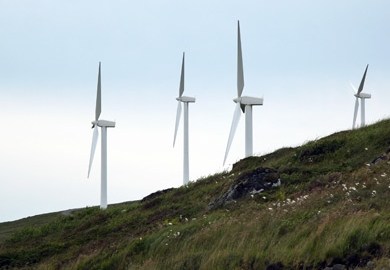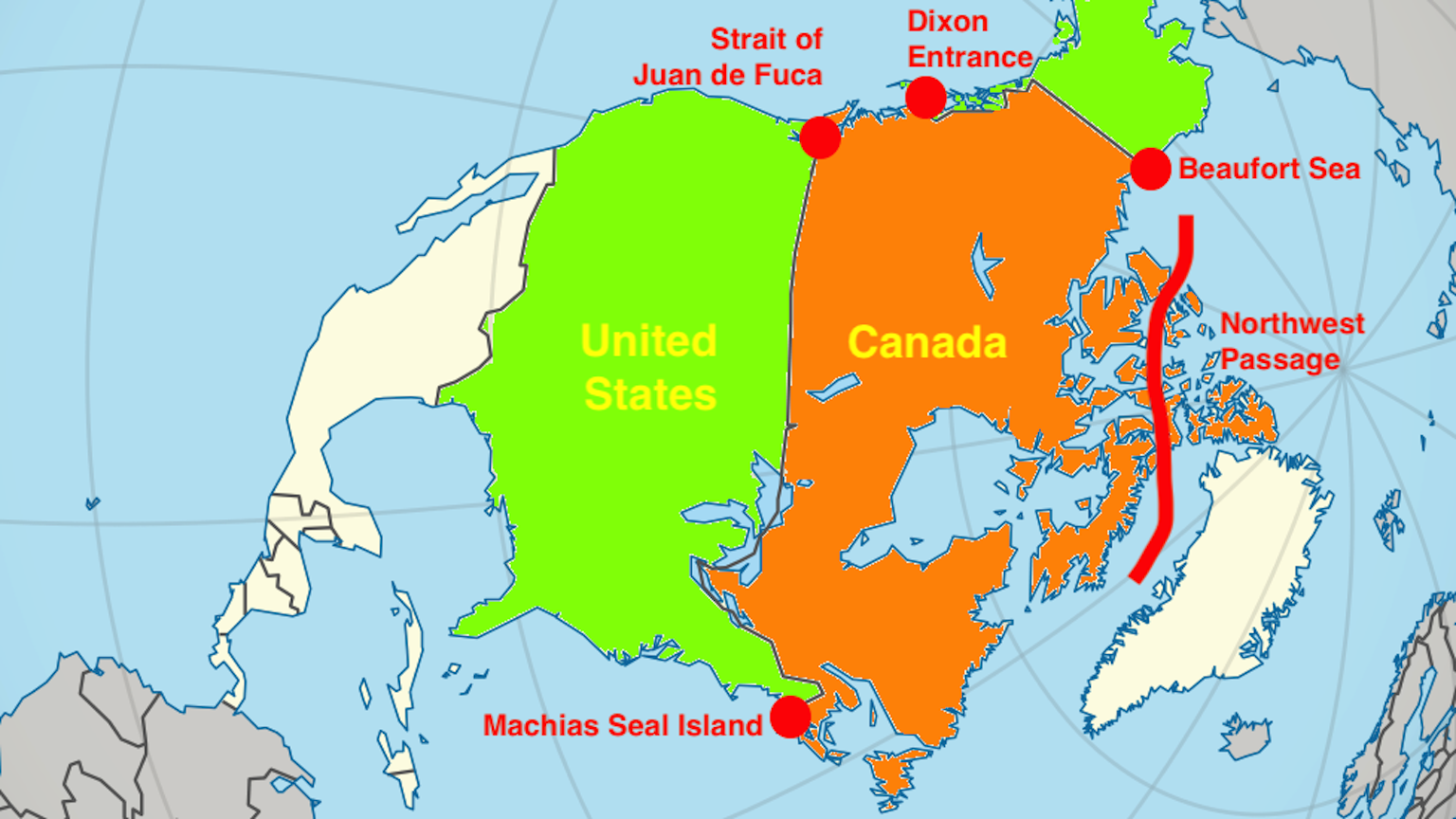American University Students Honored by Norwegian Government for Their Essays on Climate Change

At American University, students can study dimensions of the climate change challenge across multiple disciplines including environmental science, communication, public affairs, business, and international relations. This spring two students in the School of International Service earned honors and a trip to Norway as part of a climate change essay competition sponsored by the Norwegian government. In a guest post today, Khari Williams reports on the award. Williams is a graduate student in public affairs journalism at American and a student this spring semester in the “Science, Environment and the Media” course at American— MCN.
WASHINGTON – Two American University students are headed to Norway in June thanks to their winning entries in a climate change essay competition sponsored by the Norwegian Embassy.
Kelley Hamrick, 21, and Ellen Mackall, 24, both students in the School of International Service, got the good news at a March 29 reception in the SIS Founders Room. Hamrick wrote a fictitious journal from the point of view of a native Inuit in Greenland, while Mackall penned a policy brief urging the government of India to allow climate refugees from Bangladesh to cross the border.
Both Hamrick and Mackall said they became more aware of climate change issues since they began studying at AU.
“I’ve never thought of myself as a climate change specialist, but it’s always there in every environmental issue,” said Mackall, a grad student pursuing a dual master’s in international affairs at AU and natural resources and sustainable development through the UN-Mandated University for Peace. Hamrick, a junior majoring in global environmental politics, said she’s always been interested in environmental issues, and that interest was stoked when she had a chance to attend the COP15 climate change conference while she was studying abroad in Denmark two years ago.
“Also during that time, that’s when I went to Greenland for a week, which is really one of the hotspots for seeing climate change in action,” Hamrick said. “That really made an impact, so when I saw that this essay competition was up I just knew I wanted to write about Greenland.”
An excerpt from Hamrick’s winning journal, dated Feb. 12, 2021, reads as follows:
“This time of year, the ice should be thick and strong. When I was a child, my father would take me hunting out on the ice. The dogs would carry us swiftly and surely. Dogs are our best transportation. Not even the new motorized boats can replace a good dog team on ice.
“But the ice isn’t like it used to be. It cracks easily. Several villagers have died from unexpected cracks and breakage. And many dogs have starved.”
Mackall’s policy piece includes a plea for the Indian government to not use national security concerns to keep fleeing Bangladeshis out of India:
“The four thousand kilometer long fence on the border of the two countries must be used only to promote national security by fighting true crime and smuggling and to keep out only militants. The Border Security Force must know that violence and extrajudicial killings on either side must end; instead, the BSF can be part of the solution by enforcing Indian policies that allow climate refugees into India.”
At a time when communicators and public officials often struggle to craft messages about climate change that will resonate with their target audiences, Hamrick said she hopes her narrative can help people view the issue from a more personal perspective.
“I feel like people often talk about the Greenland glaciers and ice sheets and they don’t really consider the native Inuit populations there, so I kind of wanted to have this narrative from one of the Inuits who would have to face these changes, probably within the next couple decades,” she said.
Norway is about 2,000 miles away from Greenland, but they share a concern over the loss of sea ice. Norwegian Ambassador Wegger Chr. Strommen said that’s the reason his embassy sponsors the essay competition, which is now in its third year.
“We live the closest to the part of the world that physically changes rapidly,” Strommen said. “It physically changes; the ice is going away. It’s as easy as that.”
The keynote address was delivered by someone who is no stranger to sea ice. Explorer and environmentalist Will Steger, accompanied by a slideshow and videos of his expeditions to the Arctic and Antarctic, sounded the alarm about climate change and warned the audience to avoid the unproductive partisan debate surrounding the issue.
“If you’re just yelling and shouting at someone, it’s going to go over their head,” Steger said.
Borrowing from an increasingly popular tactic in public discourse, Steger said the focus should instead be on economic competitiveness and national security when climate change is discussed.
“I see this as really the thing that’s going to save our economy, clean energy jobs,” he said. “We waste over a trillion dollars a year on fossil fuels, foreign governments and big corporations. But if you’re doing small wind, conservation and so forth, that money stays in your local community.”
Hamrick and Mackall will travel to Oslo next month, all expenses paid, to attend the Nansen Conference on Climate Change and Displacement in the 21st Century from June 5 to 7. They will also travel by train for sightseeing and meetings in the city of Bergen on the North Sea coast.
“It’s a beautiful country, and they said that June is a great time to be there,” Mackall said. “I’m pretty glad it won’t be dark for the entire day.”
—–Guest post by Khari Williams, an MA student in Public Affairs Journalism at American University.This post is part of the course “Science, Environment, and the Media” taught byProfessor Matthew Nisbetin theSchool of Communication at American. See alsoother postson the climate change debate by Mr. Williams and members of his project team.





